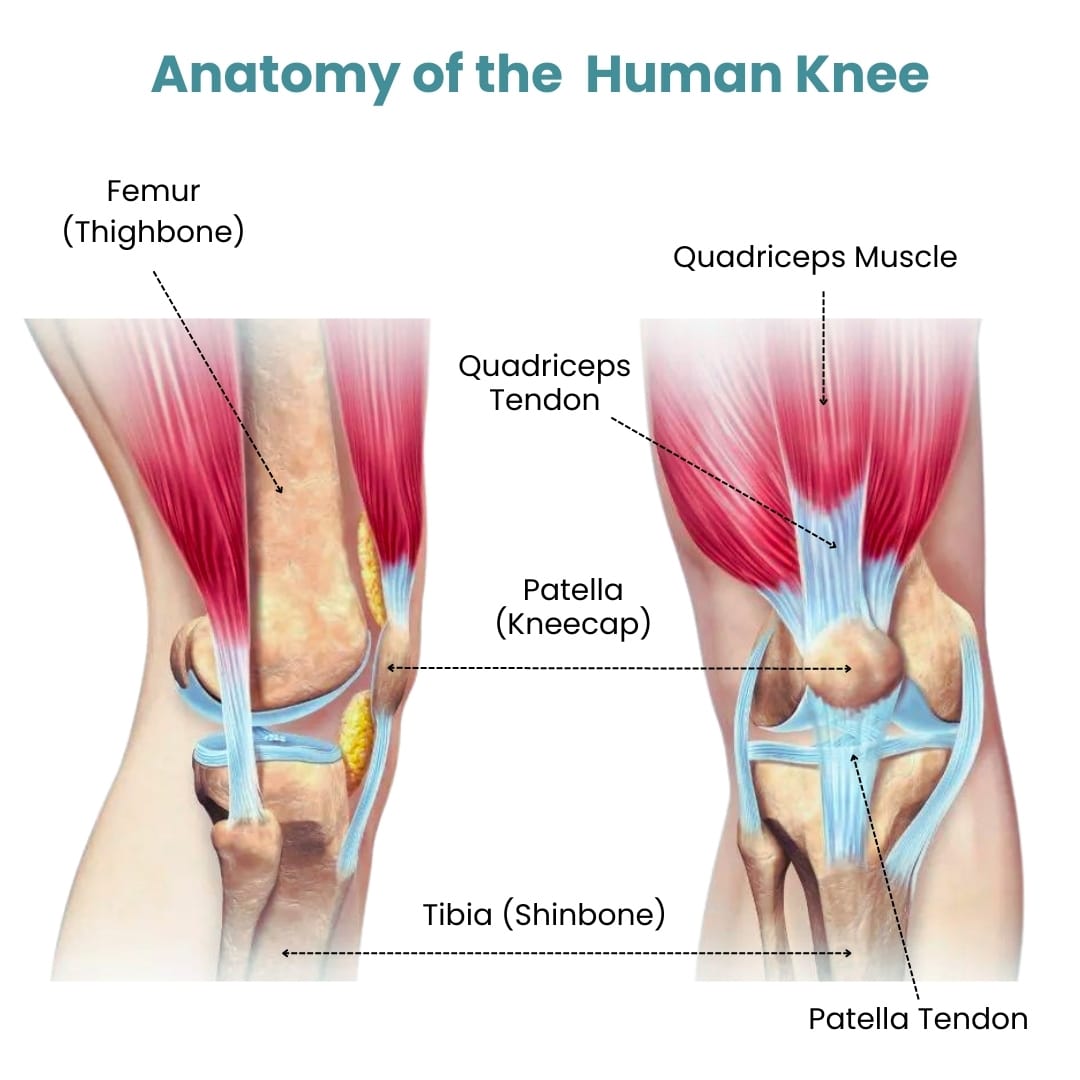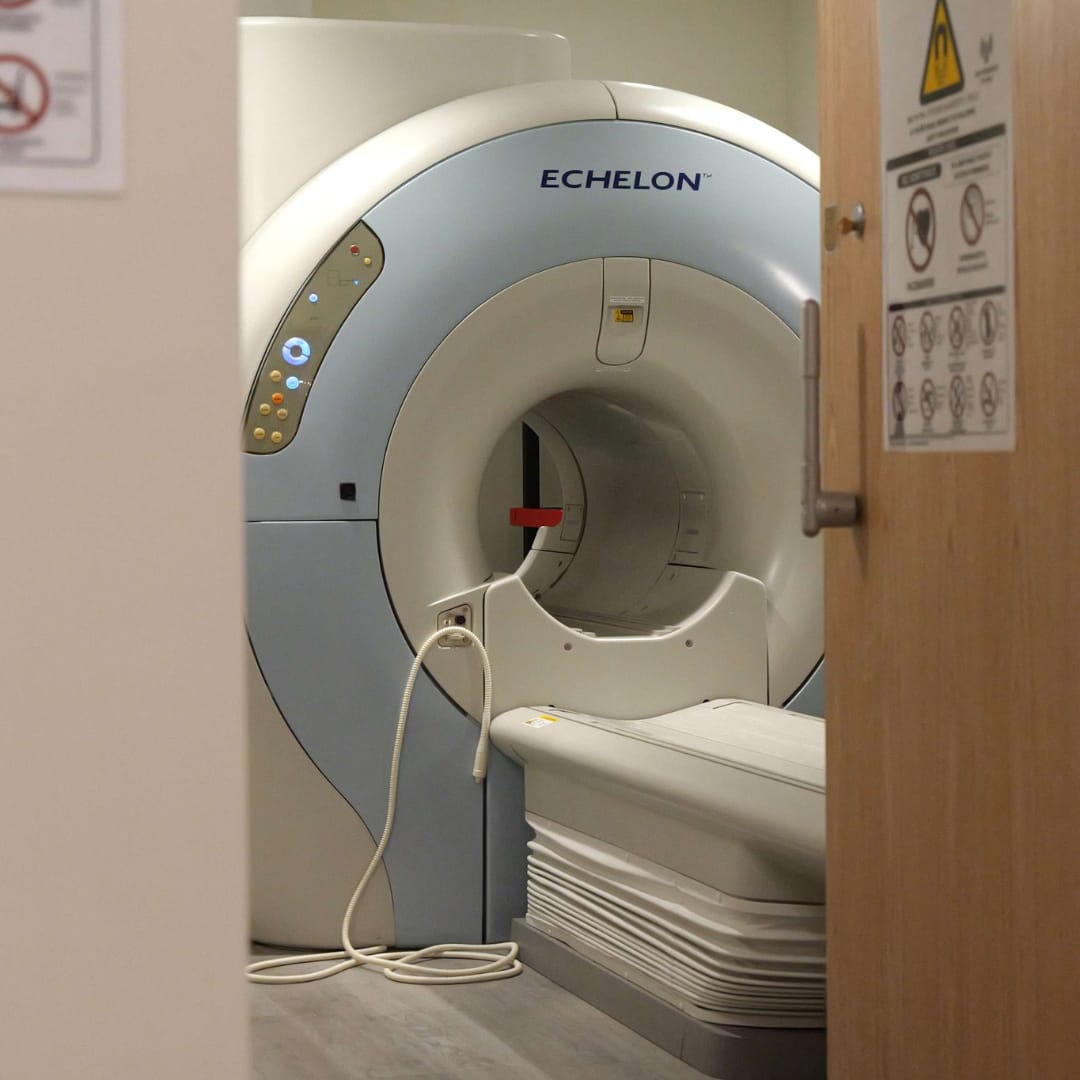The knee is a complex joint that comprises bones, ligaments, tendons, and cartilage that work together to support joint function. Knee pain is a common problem usually associated with general wear and tear from daily activities like walking, bending, standing, and lifting. It can also result from some injury, mechanical problems, types of arthritis, and other medical issues.
Knee pain is not only debilitating but also affects your movement and range of motion. If left untreated, it may result in long-term damage and mobility issues. An MRI can help your doctor see what might be causing your symptoms.
 Magnetic resonance imaging is a safe and powerful diagnostic procedure that uses magnetic fields, radio waves, and a computer to produce detailed images of structures within the knee. An MRI of the knee is a non-invasive, effective, and rapid means of identifying many different injuries and conditions affecting this joint.
Magnetic resonance imaging is a safe and powerful diagnostic procedure that uses magnetic fields, radio waves, and a computer to produce detailed images of structures within the knee. An MRI of the knee is a non-invasive, effective, and rapid means of identifying many different injuries and conditions affecting this joint.
The technology produces images in multiple planes, which allows physician to see the knee thoroughly from different angles, detect abnormalities, and identify the causes of your knee pain and other unusual symptoms. An MRI is the most effective way to assess the soft tissue structures in the knee joint, such as the ligaments, muscles, tendons, and cartilage, and diagnose a wide range of problems, from ligament tears to meniscus injuries and other damage.
With a knee MRI, doctors can prepare for knee surgery, monitor post-surgical recovery, and plan appropriate treatment.
An MRI is usually the best choice for examining the body’s major joints, like the knee. It is performed to diagnose or evaluate several injuries and conditions, including:
Ligament injuries such as ACL and MCL tears that usually occur in athletes
Your physician may order an MRI of the knee to examine the joint if they suspect a structural abnormality or some other ailment. They will be able to determine if you need an MRI scan based on a physical examination and your medical history.
MRI is usually recommended if you experience any of these symptoms:
The detailed images help your doctor visualize the anatomy of your knee to determine the possible cause of your pain, inflammation, or weakness, without surgery.
 An MRI does not require special preparation, but you should follow the instructions provided by your doctor to ensure the procedure goes smoothly and achieves accurate results.
An MRI does not require special preparation, but you should follow the instructions provided by your doctor to ensure the procedure goes smoothly and achieves accurate results.
Inform your doctor if you have any electronic devices or metal implants from previous surgeries within your body, such as:
Metal objects can affect MRI results or pose safety issues. Your scan may be delayed or rescheduled if you fail to provide accurate information to your doctor or technologist regarding the device.
MRI is a non-invasive, simple procedure and does not cause any pain. The only problem you may face is lying down for some time, especially if you have been through surgery or some other invasive procedure. Inform your technologist about your condition, and they will ensure your comfort.
You can get up from the table and change your clothes. It is best to move slowly and cautiously after you have been lying down for some time to prevent lightheadedness, or dizziness and avoid further injury to your knee and leg.
If you took any anxiety-relieving medication for the procedure, you will be asked to wait until its effects have worn off before you can leave. You will need someone to drive you home. If contrast dye was used for your MRI and you experience any effects, inform your technologist. These reactions are usually mild and can be controlled with medication.
You can return to your routine diet, medication, and activities unless your doctor has advised you otherwise, depending on your knee condition and pain.
Once the images are ready, a radiologist will analyze them and prepare the report. They will send it to your referring physician, who will share the test results with you, and explain what they mean. You can also access your report online or have the images copied onto a CD ROM for your record.
Depending on your report, your doctor will schedule a follow-up appointment to discuss more tests or a treatment plan for your knee.
A knee MRI does not pose any risks when safety guidelines are followed correctly, but there may be other risks based on your medical history or condition.
An MRI is a safe, non-invasive method for identifying the exact cause of knee pain, and aids in developing appropriate treatment plans. Knee problems are not only painful but they can also affect your routine movement and range of motion. Timely diagnosis is essential for quick relief and increases your chances of returning to your activities sooner.
Are you suffering from knee pain that is affecting your ability to stand, sit, and walk and your doctor has ordered an MR? If yes, call Manhattan MRI today and schedule your scan to have your knee joint examined and assessed for muscle and tissue damage. Our specialists help you understand what the process involves and how to prepare for it so you can undergo the scan as comfortably as possible and get the most accurate results.